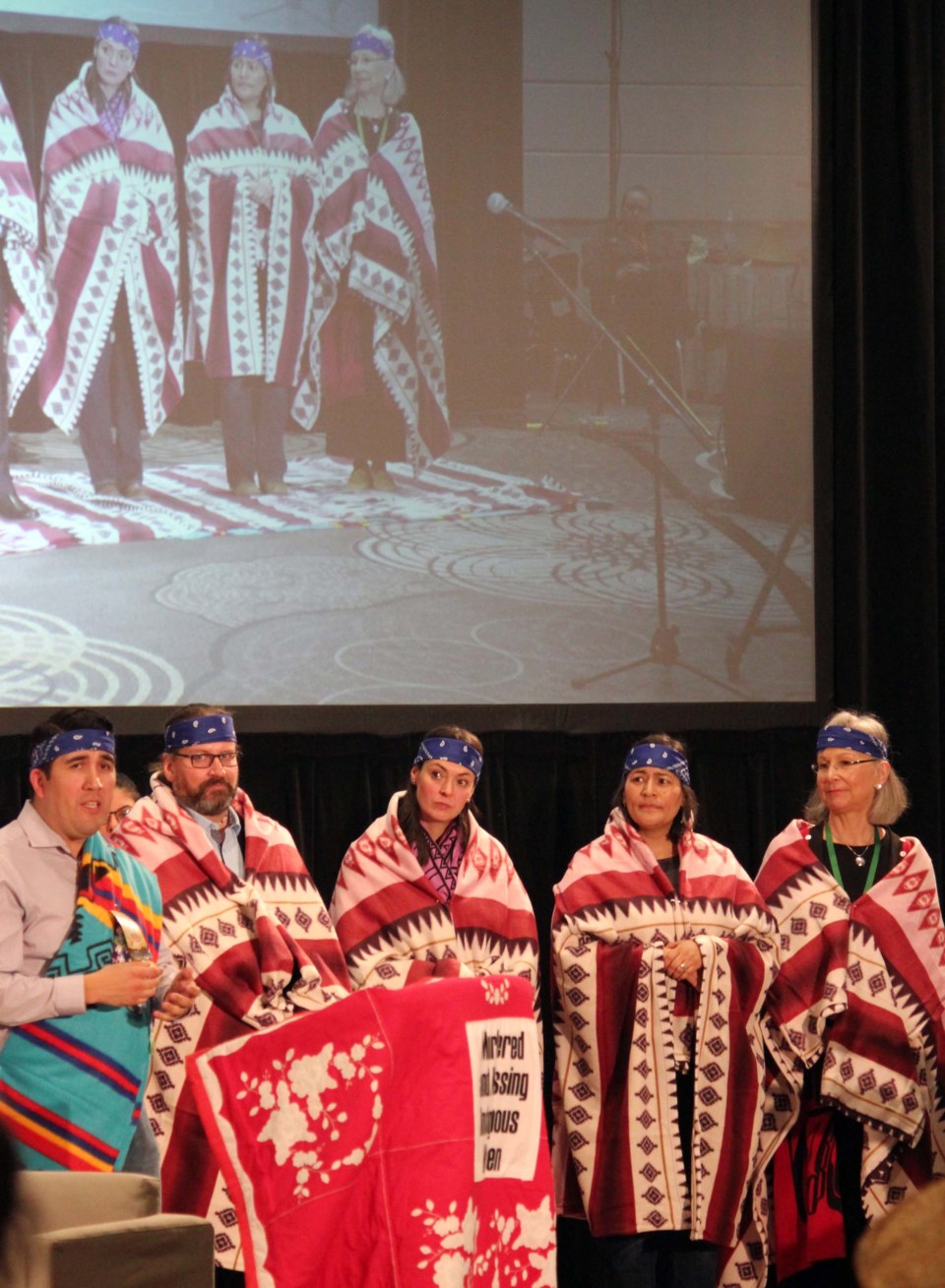In a room filled with dozens of witnesses, the Greater Vancouver community hearings for the National Inquiry into Missing and Murdered Indigenous Women and Girls began in Richmond Tuesday night and the message shared during the opening ceremonies was one of hope for healing.
“What does keep us all together is pain. The pain of colonization,” said Marion Buller, one of the inquiry’s four commissioners. “Can we, by the end of this week, let go of some of that pain and replace it with joy and pride and strength and courage?
“That’s why we’re here. Let go of that pain through telling the stories and sharing experiences one and all.”
Beginning Wednesday morning and continuing until Sunday, families will share their stories through public and private hearings and artistic expressions.
“We have a lot of work ahead of us. Hard work this week,” said Buller, as she noted that the 1000th witness will share their story during the Vancouver hearings.
The inquiry, which has now been to multiple cities across the country has a simple overarching principle: “our women and girls are sacred.”
Putting that into practice, the mandate of the hearings is to examine and report on the systemic causes of all forms of violence against Indigenous women, girls and LGBTQ2S people in Canada by identifying patterns and underlying factors.
In addition, institutional practices and policies implemented in response to violence experienced by Indigenous women and girls will be examined.
For Nikki Jacobs, who spoke as a witness during Tuesday’s opening ceremony, this painful history is one that binds Indigenous communities together.
“We’re here to all support one another. We are from different nations, but we are all one,” Jacobs said.
“This effects every nation. It could be any of our mothers, any of our daughters or sisters. We need to protect the children for future generations and this is a start.”
Since the registration process opened in the fall of 2016, more than 1400 family members and survivors have registered to participate and 880 family members and survivors have shared their personal stories through community hearings and statement gatherings across the country.
The Greater Vancouver hearings are the largest hearings so far, and Richmond was chosen to host the gathering in order to accommodate the large crowds. The hearings will run in three different rooms at the Sheraton Vancouver Airport Hotel and many are open to the public.
For Buller, these hearings represent that it’s time for First Nations communities to stand confidently.
“We’re beautiful people. All of us,” Buller said. “We’re strong, we’re smart, we’re still here after years of colonization.”



.png;w=120;h=80;mode=crop)